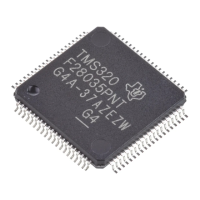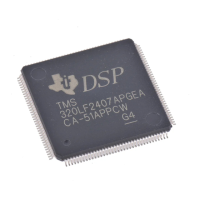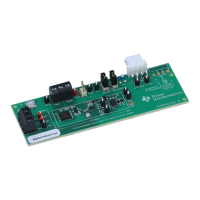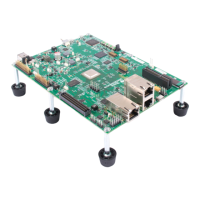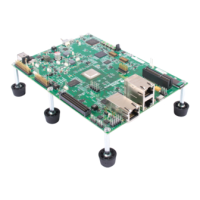Invocation
and
Operation
of
the
TMS34010
C
Compiler
3.5
Assembling
a C
Program
The GSPC batch file
automatically
produces and assembles
TMS34010
as-
sembly language source from C programs, The assembly language source file
is
available
under
the name
<input
file>,ASM,
If
you
wish
to
see
an
assembler
listing
of
the file,
you
must
explicitly
assemble this file using the
-I
option
of
the
GSP assembler, •
Appendix
E is
an
example
showing
the assembly language produced from C
programs,
3.6
Archiving
a C
Program
C program
object
files may be archived using the GSPAR archiver program,
Libraries
should
be organized so
that
all references
to
external symbols
or
functions
are defined
within
the same library
or
in a
following
library, See the
TMS34010
Assembly
Language Tools User's Guide
for
more information,
3.7
Linking a C
Program
Modular
code is an
important
concept
in
writing
software
because it simplifies
the tasks
of
debugging
and
porting,
To
make
this
modularization
possible, the
programmer
must
have
the
capability
to
link
separate
modules
into
one exe-
cutable program, The
TMS3401
0 C
environment
offers
this
capability
by
pro-
viding
an assembler
that
produces
object
code
which
is linkable
by
the
TMS34010
linker.
In
the
simplest case, a C program consisting
of
modules
prog1,
prog2, etc, can
be
linked
to
produce
an
executable
output
file called
prog,out
by
invoking
the
linker
as
follows:
gsplnk
~
~
prog.out
progl.obj
prog2.obj
~
rts.lib
[flib.libJ
For
further
information,
refer
to
the
TMS34010
Assembly
Language Tools
User's Guide,
3.7.1
Run-Time
Initialization
All
C programs
must
be linked
with
an
object
module
called boot.obj,
which
contains
code
and data
for
initializing
the
run-time
environment, This
is
the
first
code
executed
when
the
program begins
running,
and
it
has the
following
responsi bi I ities:
• Sets
up
the
system stack.
• Processes
the
run-time
initialization table and auto-initializes
global
variables,
• Disables
interrupts and calls
-main.
Boot.obj
is
supplied
in
the
run-time
support
object
library RTS,LI
B,
If
you
use
the
C
code
option
with
GSPLNK
and
include
RTS,LlB in
your
link
control
file,
boot.obj
is
automatically
linked in (see Section 3,7,3, The
-c
Option
in the
Linker).
Alternatively,
you
can use the archiver GSPAR
to
extract
boot.obj
from
the library and
link
it
in explicitly.
3-7
